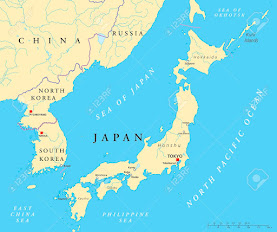Korea's political history before the war is a complex tapestry that spans centuries. This article explores the political evolution of Korea during different periods, highlighting key developments and transitions.
Ancient Korea: Tribal Leadership
In ancient
times, Korea was divided into various tribal regions, each led by a chieftain
or local leader. These tribes operated independently and made their own
decisions, often vying for power and territory.
Three Kingdoms Period: Rival Kingdoms
During the
Three Kingdoms period, Goguryeo, Silla, and Baekje emerged as distinct
kingdoms, each with its own rulers and governments. Competition for dominance
was a constant theme in this era.
Unified Silla Era: Centralization of Power
The Unified
Silla period marked the consolidation of power under a single monarchy, leading
to a more centralized government. The royal court and aristocracy held
authority, maintaining political stability.
Goryeo Dynasty: A Dynastic Rule
The Goryeo
Dynasty saw the establishment of a centralized monarchy with the king as the
highest authority. The government was organized into different offices, and
Confucianism played a significant role in shaping governance.
Joseon Dynasty: Neo-Confucian Influence
The Joseon
Dynasty introduced Neo-Confucianism as the state ideology, emphasizing moral
values, ethics, and social order. This philosophy influenced political
governance, civil service exams, and the structure of society.
Japanese Colonial Period: External Influence
During the
Japanese colonial period, Korea faced external control and governance by Japan.
Korean political autonomy was significantly diminished, and Japanese policies
had a profound impact on Korean society and politics.
Korea's
political history before the war reflects its journey from tribal leadership to
centralized monarchies, dynastic rule, and the influence of Neo-Confucianism.
The Japanese colonial period brought significant challenges to Korea's
political autonomy. These historical developments laid the groundwork for the
modern political landscape of Korea.











0 Comentarios